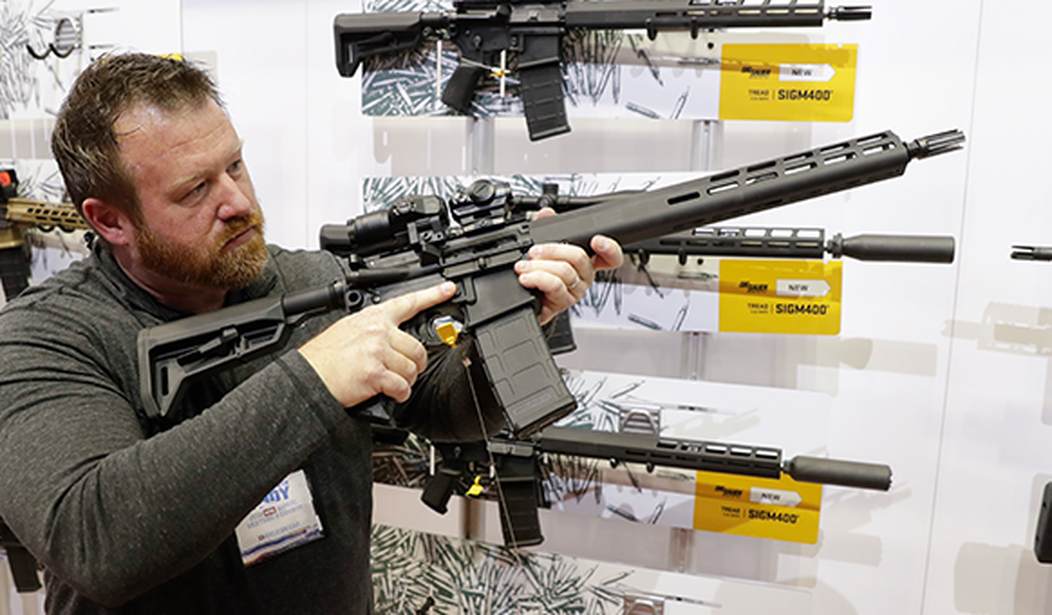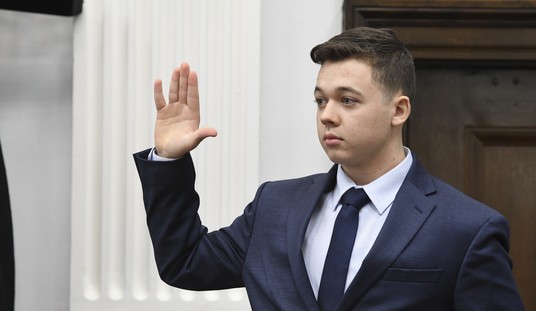Right now, there’s a lot of talk about mandatory buybacks. It’s being mentioned more often than the primary champion for them, presidential candidate Beto O’Rourke. The idea is alluring for a lot of anti-gun voters, the idea of not just banning so-called assault rifles, but also taking those already in circulation off the streets. And hey, since there’s a buyback, that’s totally different than just taking the guns away, right? Right?
Well, no, actually. It’s just a slightly more polite version of the same mentality that would have jackbooted thugs kicking in people’s doors to search for guns and hauling people off to prison. Doing so, even with a mandatory buyback, is likely to spark trouble.
There is an upside, though. That upside is that no such thing is likely to happen.
Why?
Because lawmakers know damn good and well that even if violence wasn’t a potential issue, noncompliance is.
Before we go any further with the back-and-forth about armed resistance, let’s think about the reaction we can realistically expect to a watered-down AR-15 ban, with no mandatory buyback. How many gun owners would either hand over or destroy their assault weapons? And how many of the authorities whose job it would be to put refusers in jail would even try to enforce a ban?
We don’t have to look to New Zealand’s recent flop of a mandatory buyback, where less than 10 percent of the country’s estimated number of newly banned weapons have been handed over so far, to answer those questions. There’s a great case study right here in the bluest of blue states: New York.
…
I could give several more examples of such reporting. But the upshot is that gun owners are overwhelmingly ignoring the law—and the police are overwhelmingly looking the other way.
A 2017 article from NYU law professor James Jacobs sums up the state of play. After detailing the electoral damage the backlash against the act did to New York Dems—”In 2014, Governor Andrew Cuomo was reelected by a much diminished majority and Republicans regained control of the State Senate”—Jacobs concludes that the “SAFE Act’s impact on gun crime, suicides and accidents has never been seriously assessed, although both gun control proponents and gun rights advocates make extravagant claims. In truth, there seems little likelihood that the SAFE Act has had much, if any, effect since it has been only partially implemented, almost completely unenforced, and widely ignored. Its various provisions are easily circumvented” (emphasis mine).
New Yorkers are famous for their attitude, but this local police pushback on state and federal gun laws is not at all limited to New York. Nor is it a recent development. In 2013, for example, NBC reported on local sheriffs from Maryland to Colorado who publicly touted their refusal to enforce any gun laws they feel infringe on the Constitution. The growing Second Amendment Sanctuary movement, active in California, New Mexico, Oregon, and a handful of other states, is being led by local law enforcement.
So even if Congress were to pass such a law, it wouldn’t accomplish anything because no one is going to comply with it anyway, including a large number of police officers.
Let’s also keep in mind that the Second Amendment Sanctuaries are driven by the law enforcement leadership. In many places, though, that leadership will espouse anti-gun attitude. The rank and file officers, however, tend to hold very different views. They tend to recognize that law-abiding gun owners aren’t the problem. They support the Second Amendment.
Those are the same officers who would be tasked with various forms of confiscation. Does anyone want to lay odds that they’re going to be that eager to go beyond the minimum required in such an instance?
When candidates start making proposals like this, they’re dreaming. They want to appear that they’re somehow on top of the issue, but they haven’t really thought of the logistics involved. They’re convinced they can just wave a magic wand and change the world. It doesn’t work that way, though, and when it comes time to actually pass laws, they have plenty of people telling them they can’t do it.
In other words, despite Beto’s fondest wish, it’s not going to happen.








Join the conversation as a VIP Member